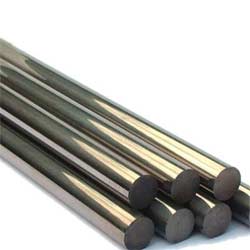Steel makers cry foul over cheap Chinese imports
15 Jun 2009
Staggered by cheap imports from China, Indian small and medium enterprises have urged the government to strengthen anti-dumping investigations and impose tougher safety and quality checks on Chinese products.
A survey conducted by the Federation of Indian Chambers of Commerce and Industry suggests that Chinese manufacturers are offloading their products in India at prices that are 10-70 per cent cheaper than domestic prices.
 ''Trade and industry have reported that with western markets losing their appetite for imports, Chinese manufacturers are increasingly looking at alternative markets to offload their wares. India is an obvious first choice in such a scenario given its geographical proximity and the fact that it is still growing at an appreciable 6.5-7 per cent rate,'' the survey says.
''Trade and industry have reported that with western markets losing their appetite for imports, Chinese manufacturers are increasingly looking at alternative markets to offload their wares. India is an obvious first choice in such a scenario given its geographical proximity and the fact that it is still growing at an appreciable 6.5-7 per cent rate,'' the survey says.
While industries across sectors are feeling the Chinese heat, the industries that have been most impacted include processed food items such as honey, light engineering goods like power presses, welding machines and printing machinery, heavy engineering goods such as high speed diesel engines, chemicals and chemical products such as soda ash and ammonium chloride, and metal products like auto components, the survey says.
In its statement, FICCI said the price difference was "huge and difficult to explain". Amit Mitra, FICCI's secretary-general, said Indian industries were being hurt by "typical Chinese predatory pricing" intended to drive rivals out of business so that Chinese companies could capture the market - and then raise prices to more normal levels.
Indians are flocking to cheap but decent quality Chinese products, from pens and clothing to toys and engineering equipment. According to FICCI, Indian manufacturers face serious competitive disadvantages in comparison with China, including poor infrastructure and rigid labour laws, which perversely discourage companies from growing and instead promote inefficient fragmentation.
FICCI does not quite mention the well-known facts that China has vastly better manufacturing practices, and its producers are not strangled by multiple taxes and red tape. However, it makes a valid point about the need for stronger scrutiny.
''Immediate imposition of severe testing requirements on imports from China is a must, as these include basic items of consumption and even vaccines,'' its survey says. Anti-dumping investigations for imports from China need to be beefed up and decisions taken at a quick pace, it adds.
India takes 10 to 12 months to investigate and conclude anti-dumping complaints. "Time is of the essence," Mitra said. "Now the time it takes for anti-dumping investigations is more than enough for them to have killed the industry."
In its statement, FICCI said the Chinese imports were between 10 per cent and 70 per cent cheaper than comparable Indian products, a price differential that it said was "huge and difficult to explain". Amit Mitra, the FICCI's secretary-general, said Indian industries were being hurt by "typical Chinese predatory pricing" intended to drive rivals out of business so that Chinese companies could capture the market - and then raise prices to more normal levels.
There was a massive 75 per cent rise in Chinese imports to India in 2008, eroding the market share of Indian companies. Indian SMEs are apprehensive that as the Chinese government gives more incentives to boost exports, imports to India and other neighbouring countries would go up.
The FICCI survey of 110 SMEs found that nearly 70 per cent of the participants said they were feeling the heat in the domestic market due to rising imports from China.
"The price gap between the Indian products and Chinese products is huge. Interestingly, India has not offered 'market economy' status to China, as there are serious distortions and lack of transparency in the pricing of products that come out of any Chinese factory," FICCI said in the report.
Hard talk likely at summit
The appeal for greater government protection comes at a time of rising tensions between New Delhi and Beijing about trade after a high-profile dispute over an Indian ban on Chinese-made toys.
India and China meet on Tuesday as leaders of the world's biggest emerging markets - Brazil, Russia, India and China - assemble for their first formal summit, seeking a louder voice on the global stage.
Leaders of the so-called BRIC nations will discuss ways to reshape the global financial system. Ideas for a new reserve currency to reduce dependency on the US dollar may also be on the agenda.
Indian imports from China rose 55 per cent, to Rs2,700 crore in the financial year to April 2008, and expanded again in the year just ended, according to data from the commerce ministry.
In January, India announced a six-month ban on the import of Chinese toys, citing concerns about their safety, after Indian toymakers complained that the Chinese had grabbed the lion's share of the country's toy market, estimated at Rs250 crore a year.
However, the ban was lifted just two months later after Beijing threatened to take the issue to the World Trade Organisation.


















